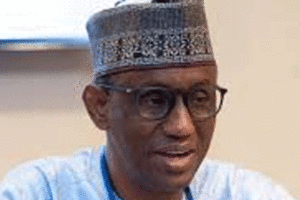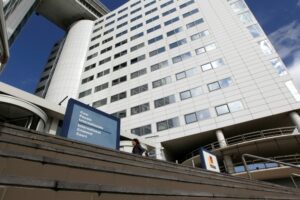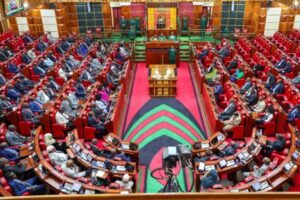
Dorothy Chemutai shops for shoes for Christmas at Bata Tom Mboya Mega in Nairobi, on December 24, 2021. [File, Standard]
Business leaders in the country are confronting weak consumer spending and persistent cash flow crises, a Central Bank of Kenya (CBK) survey has shown, even though most are banking on a Christmas season sales boom to salvage the year.
The CBK’s September 2025 CEOs’ Survey, a key barometer of private sector sentiment, reveals a corporate sector squeezed by muted consumer demand and liquidity challenges, even as macroeconomic indicators show cause for optimism.
The core challenge lies with the average consumer, whose purchasing power remains constrained. This has resulted in sluggish sales and slow inventory turnover across multiple sectors, particularly manufacturing and retail.
Follow The Standard
channel
on WhatsApp
At the same time, a backlog of government pending bills—payments owed to contractors and suppliers—has exacerbated a liquidity crunch, leaving many companies struggling to access working capital.
“The number one headache for firms is the elevated cost of doing business, followed closely by reduced consumer demand,” the report stated, noting that these domestic pressures are compounded by external risks such as recent US trade tariffs and global geopolitical tensions.
Despite the gloomy short-term outlook, a majority of firms expect business activity to pick up in the fourth quarter, pinning their hopes on seasonal demand linked to Christmas.
The Christmas holiday is marked by large family gatherings, travel, and gift-giving, typically driving a surge in spending on consumer goods, hospitality, and services.
According to the survey, 54.8 per cent of CEOs anticipate an increase in demand and orders in Q4, while 54.4 per cent foresee higher sales. To meet the expected uptick, many plan to hire more staff and ramp up production.
Most firms reported operating below capacity, meaning they can respond to a festive demand spike without major new investment—by increasing shifts, extending working hours, or improving efficiency through automation.
The survey also offered a mixed view on credit conditions. While a larger share of firms reported a decline in bank loan rates following a series of central bank rate cuts, the reductions were described as “marginal,” with most businesses seeing their borrowing costs drop by only one to two percentage points.
Access to credit remains challenging, especially for small and medium-sized enterprises, which face stringent collateral requirements and cautious lending by banks.
In response to these challenges, firms are increasingly turning to digitisation and automation.
Over three-quarters of surveyed CEOs, said they had adopted new technology in the past year, focusing on areas such as customer service, sales analytics, and government e-procurement compliance.
Stay informed. Subscribe to our newsletter
Looking ahead, strategic priorities for the next three years include improving operational efficiency, diversifying products and markets, and implementing cost-optimisation measures.
In their recommendations to the Kenya Kwanza government, business leaders urged authorities to fast-track value-added tax refunds, clear pending bills and engage the private sector more closely during policy formulation.
They also called for lower taxes and improved infrastructure to stimulate investment and ease operational bottlenecks.
Follow The Standard
channel
on WhatsApp





